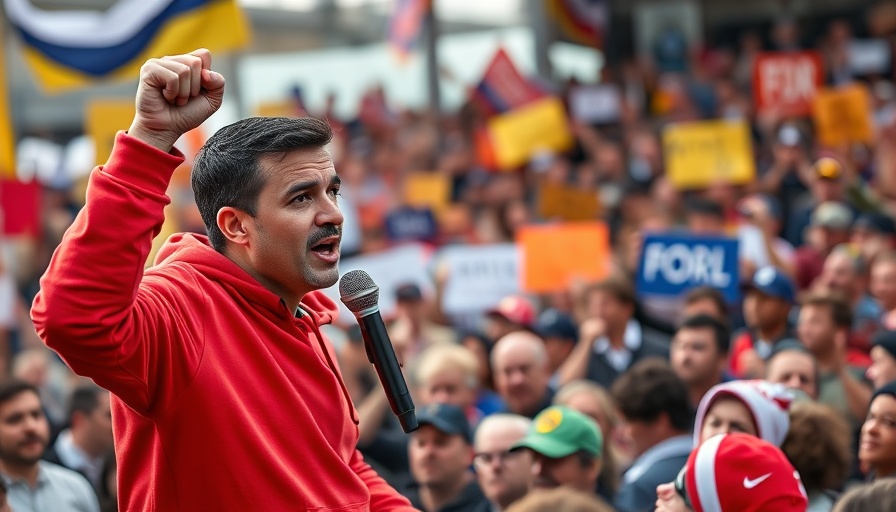
The EFF's Firm Stance Against Coalition Governments
The Economic Freedom Fighters' (EFF) leader, Julius Malema, firmly reiterated his party's opposition to any coalition government featuring the Democratic Alliance (DA) and the Freedom Front Plus (FFPlus) during a recent address at the EFF’s land reclamation day event in Sophiatown, Johannesburg. Malema’s remarks highlight a crucial moment in South African politics as the country approaches the 2024 general elections.
Enemies of Progress or Strategic Opponents?
Malema’s assertions that the DA and FFPlus are "enemies of progress" reveal the polarizing atmosphere surrounding political engagements in South Africa today. He referred to these parties as having contributed to the ongoing struggles faced by marginalized communities. By characterizing opponents this way, the EFF is attempting to solidify its base while distancing itself from collaboration that could dilute its principles ahead of crucial elections.
Economic Policies and Public Discontent
In his speech, Malema also addressed the recently deferred VAT increase, stating the party’s unwavering opposition to such fiscal policies. The discussion highlights a broader context—South Africans have become increasingly vocal about economic inequalities and rising living costs, accentuated by the VAT hike. This reflects a critical sentiment as citizens brace themselves against the backdrop of service delivery challenges strong enough to trigger public protests and discontent.
A Call to Reclaim Land
Looking back to 1955, Malema drew parallels between the forced removals seen in Sophiatown and the ongoing plight in Palestine. "The struggle of Palestine is our struggle," he asserted, echoing the historical frustrations surrounding land dispossession in South Africa. This narrative resonates deeply with those advocating for land reform and compensation under the banner of 'expropriation without compensation,' a hotly debated topic in contemporary South African politics.
The Implications for Future Political Alignments
The rejection of coalition talks with the DA and FFPlus prompts deeper questions about the future political landscape. Analysts anticipate a potential realignment as parties strategize for the upcoming 2024 elections. The EFF’s clear stance may embolden opposition groups while simultaneously consolidating its own identity as a staunch advocate for the marginalized.
Historical Context of Political Tensions
Understanding the historical tapestry is vital in appreciating today’s political landscape. The EFF, borne out of frustrations that emerged during the ANC-controlled governance, signals a shift in how post-Apartheid politics is conducted. With lingering impacts from state capture and deep-rooted economic challenges, the call for accountability and reform is pivotal, not just for the EFF’s survival but for the democratic fabric of the nation.
Voter Sentiments and the Road Ahead
The ongoing tensions among opposition parties and their respective platforms could impact voter turnout significantly in 2024. As citizens seek clarity on manifestos and policy proposals amid growing calls for electoral reform, the EFF’s approach could shape the narrative of what engaged citizenship looks like in South Africa.
The EFF’s persistent clarity in its vision and values against the backdrop of a possibility-laden political landscape may indeed catalyze a pivotal shift in the upcoming elections. As debates intensify, it remains essential for South African citizens to engage critically and participate actively in shaping the future they wish to see.
As we look towards the future, the importance of civic engagement and accountability cannot be overstated. In an era of uncertainties, informed citizens are best equipped to hold their leaders accountable. Stay alert as we continue to report on these crucial developments.
 Add Row
Add Row  Add
Add 




Write A Comment